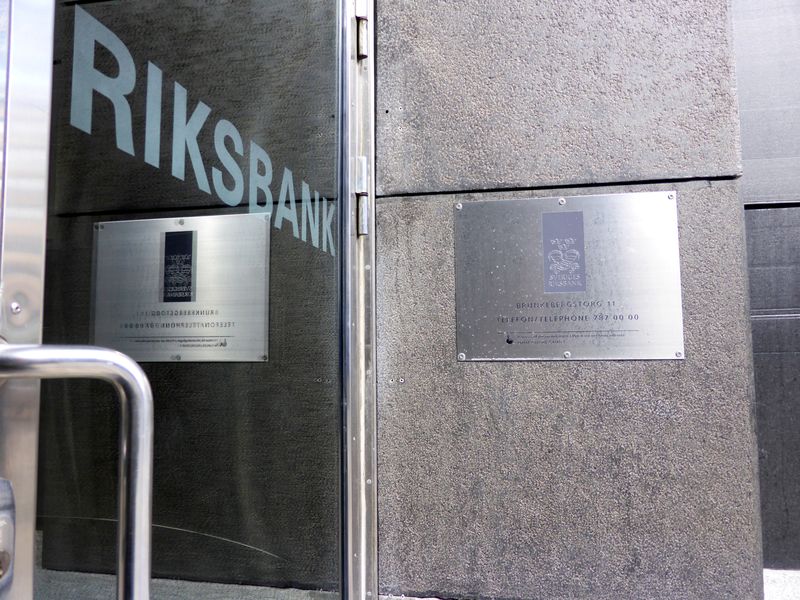STOCKHOLM (Reuters) - Sweden's central bank will hike its policy rate by a quarter percentage point this week in a bid to bring down inflation further, but that is likely to be the end of the rate-hiking cycle, a poll by Reuters showed on Tuesday.
Central banks around the globe have jacked up interest rates to tame levels of inflation not seen for at least 30 years and while tighter policy is beginning to bite and growth is slowing, their job is not yet considered done.
In Sweden, inflation slowed in May, but underlying price pressures remained strong, and economists in the poll were unanimous in seeing a hike to 3.75% from the current 3.50% when the Riksbank announces its decision on Thursday.
"A weak crown, high but falling inflation and concerns about financial stability create a complicated situation for the Riksbank ahead of the interest rate announcement," SEB said in a note.
"We see a final hike of 25 points at the meeting in June as most likely, combined with a decision on a faster sale of the Riksbank's bond holdings."
At its latest meeting in April, the Riksbank tightened policy by 50 basis points and said it would likely hike by a further quarter percentage point at one of the meetings in June or September.
Opinions about what the Riksbank will do after next week diverge.
The median forecast in the poll is for the policy rate to top out at 3.75%, but a higher outcome is possible and some analysts see the policy rate reaching 4.25% at the end of the year.
The Riksbank faces a dilemma. Headline inflation was 7.6% in May, way above the Riksbank's 2% target, and would warrant more interest hikes. However, Swedish households are some of the most indebted in Europe and economists have warned that too steep rate hikes risk ruining the economy.
The weak Swedish crown is also making the Riksbank's inflation-fighting job more difficult.

The European Central Bank hiked its policy rate to 3.5% in June, the highest level for 22 years, and indicated it would keep raising rates, adding pressure to the Riksbank to at least match that level.
The median forecast in the poll showed the Riksbank starting to cut rates at the start of next year.